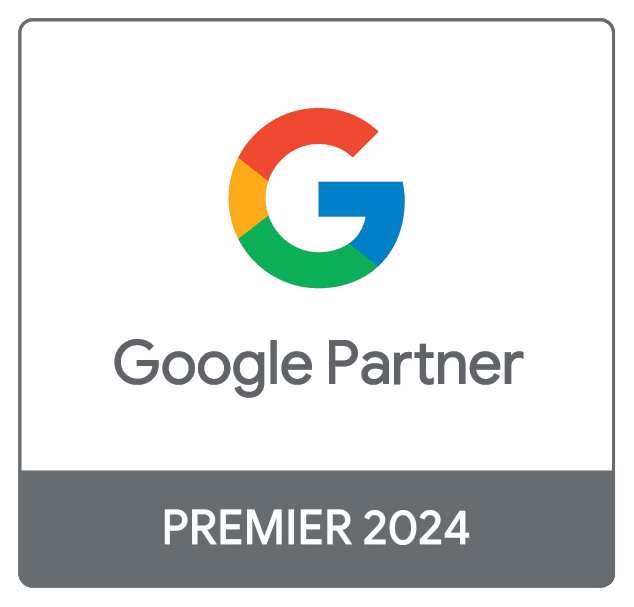How to Hire an SEO Company with Jordan Slover
Episode Description:
How do you choose the right SEO agency for your business? Jordan Slover reveals how much you should be paying for SEO, what strategies your agency should use, and how long it will take to see results.
Key Takeaways:
- How do you asses your current SEO performance?
- What questions should you ask when hiring an SEO company?
- How much should SEO cost?
- What are the signs you shouldn't hire a specific SEO company?
- What is link velocity?
- What is the difference between SEO companies in Australia vs the US?
Additional Resources:
Featuring:

Jordan Slover
About the Guest:
Jordan has been helping companies grow online for the past 15 years. He got his start in online marketing working for Google in NYC and London before moving to Sydney to help start the online marketing division of a web design agency. He started Neon Ambition 8 years ago and now has a team of 25 people helping companies generate more leads online.
He lives in New Jersey with his wife, three kids and a 15 year old pug named Rhys. Follow him on LinkedIn and on Instagram [@neonambition], or visit his website.
Transcript
James Lawrence: I'm here today with Jordan Slover. Jordan, G’day from down Under.
Jordan Slover: Hey, James. Good to be here.
James Lawrence: So Jordan started his career in digital with Google. He worked for a number of years in both the New York and London offices, a variety of roles including strategic partner, development manager. We crossed each other's paths when Jordan actually worked with us here Down Under for how many years? Jordan Three?
Jordan Slover: Almost four, I think.
James Lawrence: Yeah, four years. You told me at the going away party that you were only planning on staying for six months.
Jordan Slover: Yeah, I thought there was no way I would work for you for more than six months and then I would keep travelling.
James Lawrence: *laughs*
Jordan Slover: But James was a good boss and I really liked it. And I stayed four years.
James Lawrence: Excellent. So after leaving us, went back to America, founded his now really successful agency, Neon Ambition. So one of Texas's most experienced paid search SEo, CRO and content marketing companies now with offices on the East Coast in New York. Jordan's also winner of the Google AdWords All-Stars Summit Award in 2015 and 2016. Jordan, welcome to the podcast.
Jordan Slover: Thanks, James. Good to be here.
James Lawrence: So what we thought we wanted to do today was we obviously know each other really well. Collectively, I guess we've probably sold SEO for, I mean, showing our ages here, but probably 35 years combined and thought it'd be good just to have an open conversation to agency owners. We’re both familiar with the Australian market. Jordan obviously super exposed to the North American market, just to I guess put ourselves, if we were in your shoes as an in-house marketer looking to procure SEO services, what would be the process that we would go through? Our agencies are similar in some ways are different in others. We've kind of been exposed to big and small, so just wanted to talk it through and hopefully from having been on the inside and trying to now look on - pretend we're looking from the outside in - kind of share some insights to in-house marketers that might help them better procure SEO services. So I think first of all, the one we're talking about Jordan, was if you do have an incumbent SEO provider, how would you assess the current performance and kind of get a sense as to whether they're doing a good job or not?
Jordan Slover: Yeah, that's a good question. So if I had an existing SEO company, you know, communication is really a big one for me and for my company customer service. So, if your company is not willing to meet with you when you have questions or answer the questions that you have about what they're doing or walk through reporting, you know, those would be things I'd be concerned about. A lot of things that I hear when people are inquiring with me on Neon Ambition is because they don't know what their current SEO agency is doing. So that's obviously a problem if you don't know what you're paying for or you don't know what the team is doing or they're trying to, you know, tell you its too complicated, then I really would question what they're doing. So that's a big thing to look out for.
James Lawrence: Yeah, I think that's good. I think that's probably one of the key drivers when we get people chatting to us about new business being just, there's no love. I'm not getting any, you know… my Account Manager changed, I haven't heard from the new one. In terms of actual performance and metrics. It’s kind of funny environment right? Last two years, COVID, some industries traffic has just gone down and whatever else. So how do you actually measure effectiveness of your current SEO provider?
Jordan Slover: Well, it should always be about return on investment. You know, as long as you're getting enough organic leads and those leads are good enough quality to turn into customers and those customers are worth more than what you're paying your SEO with, I think to a certain degree it's that successful. Obviously you have to measure the ROI of your SEO investment compared to your pay per click or other, you know, advertising efforts and put your money where it's most effective. But SEO often is one of the best ROIs, I think, for a lot of our customers, especially over the long run. So at the end of the day, you know, I always get excited when I see our customers traffic going up and to the right and then have to remind myself, Jordan, traffic doesn't matter. And even though I've been doing this for 13 years, it's I still get excited about increases in traffic where I remind myself, wait a second, let's look at organic leads. That's what really matters. And then, you know, you see organic leads going up every month. Then you get excited, but then you even have to remind yourself, wait a second, we have to get on the monthly reporting call or the weekly status call and say, hey, how are the quality of the leads? You know, is it turning into customers? And it's really only then when you get that feedback from the customer that, yes, our phones are ringing more. Yes, we're getting more form fills and the quality that we really can pat ourselves on the back. And you know that that should be improving every month, even if traffic, you know, is going up or down. As long as you're getting enough business to more than pay for your SEO to win.
James Lawrence: That's right. I think that's probably definitely true of more mature campaigns for us. Early days, traffic, green arrows in terms of keyword rankings on terms that we agree to be valuable are good leading indicators, I guess, of campaigns moving in the right direction.
Jordan Slover: Yeah, well, that's a good point. So early days, you absolutely have to rely on rankings because especially if you're a new business or a brand new website and you're starting from ground zero, traffic is going to be slow to come and leads are going to be slow to come. So in the early days, we are relying more on keyword ranking reports because, you know, you might not even be in the top 100 for a really competitive keyword. And after two months, you know, you move into the top 100. Okay, great. Then you move from 100th, to 80th to 60th, to 40th, all the way up to 11th. Yeah, you just made tremendous progress, but you're still on top of page two and the phone's not ringing. So, yes, we do rely on rankings, early days, and then hopefully, you know, move a little bit away from tracking individual keywords and focus more on leads down the line.
James Lawrence: How do you guys how do you guys pitch time frames? Because obviously I think we'll get into signs that you're dealing with potentially good agency that you're considering. But I think the industry has done itself such a disservice over the years and it isn't something that you can generally move quickly in terms of SEO performance, but equally that means that nefarious providers can kind of hide behind the fact that it does take time. So how do you use that expectation with a prospective client or a new or an existing client as to how long before they can start to expect results?
Jordan Slover: Yeah, well, I often tell people on the sales process that half my job is setting expectations and that's something I take a lot of pride in - trying to set realistic expectations because it is my agency. I'm not just the sales rep trying to hit a quota, which is something we might talk about later. You know, you need to pay attention to who's talking to you, and is it just the sales rep trying to hit a quota or is it the the owner of an agency or someone higher up in an agency who maybe has more skin in the game or more to lose if if they set unrealistic expectations? But one of the sites that I have bookmarked and that's maybe the only site that I actually use bookmarks for, is Google's own SEO Advice. So if you go to Google and search Google's SEO advice one of their webmaster pages comes up and I like to say this this page and you know maybe you can include a link to it when you post the podcast? But Google themselves, say give your 4 to 12 months to see results, which is an annoyingly long timeframe, you know, but I understand why it's so long is because every client is completely different in their SEO journey.
Jordan Slover: Whether you're brand new website, and if you are brand new website with no backlinks or very little content, you probably are looking 6 to 12 months. But it even depends on industry and it depends on location. There's so many variables to consider when deciding or when talking about how quickly should we see results. So, you know, some of the most competitive industries we worked in are personal injury law, which I don't know if that's really a thing in Australia?
James Lawrence: Yep, yep, yep.
Jordan Slover: Insurance is another really competitive one. And, you know, if you're in a small town, a small rural town, and there's not a lot of competition and you're only trying to rank for your small town, it might only take four months to get results. But if you're in a major metropolitan area in a really competitive space or even if we're not talking about local SEO, we're talking about trying to rank all across Australia, all across the US and you're competing with all of the companies, it can take longer. So this is going to be a really long winded answer.
James Lawrence: No, that's good. But this is nuanced, right? That's the reality of it.
Jordan Slover: Yeah, this is really nuanced. This is another thing that I think is really important when shopping for SEO is talking to a company that takes the time to assess where you're at versus the competition. Because until you do that, it is almost impossible to set realistic expectations for how long SEO is going to take for you and your company individually. And also to right size the amount of SEO that you do, because you can just do the bare minimum to kind of tick the box and say, yeah, we did some SEO, great! Or you can get really aggressive with it and we can talk about what the difference between those two things are.
Jordan Slover: One of the things that I do at Neon Ambition is a lot of competitive research in the sales process. And what I take a look at is how much traffic do you have currently versus your competition. And I'm using SEMrush for this. They estimate organic traffic. You know, we don't have access to all of our competitors Google Analytics, but SEMrush estimates organic traffic. So I'll take the prospects site. And I've been doing more and more companies these days because the more data you have, the better. So we'll maybe take a look at 5, 10, upwards of 20 competitors depending on the space. We take a look at how much organic traffic they have, how many index pages their website has, how many of those pages are ranking for anything organically. We take a look at how many referring domains the website has coming to it, which essentially how many websites are linking to it. We take a look at the domain trust flow and the domain citation flow, which are two metrics from Majestic. We'll take a look at a number of Google reviews they have if it's a local business. We take a look at the number of keywords in the top three and the number of keywords in the top 100. And we take a look at all of that for, you know, their site versus 10 or 20 competitors. And it's really only then that I start to get an understanding of where they're at in the space. Do they have the lowest amount of traffic and all their competition? Well, boy, they're going to have, you know, a hill to climb. Yeah, we're talking a longer timeframe. Maybe they're halfway in that chart. And then you've got to really take a look at like-for-like competitors, you know, who do they view as their most like-for-like.
James Lawrence: Do you get them to supply the list of competitors?
Jordan Slover: I try to, yeah. Because I always tell them, hey, I can Google, ‘Austin personal injury law firm’ or whatever, and see who Google says is your competitors. But if you can tell me who your competitors are as well, I think it's better because I might only search I might only search for a couple of keyword phrases, but if I search for three other keyword phrases, maybe I'd find different competitors. I always want to make sure that I have the competitors that they know - and they usually know who who their competitors are. So it's really only then that I can take a look at, hey, your site has 100 pages and all of the sites that rank above you and have a lot more traffic than you have a thousand pages. Well, you know, no wonder they have more organic traffic than you do. They have 900 or more opportunities to rank. Or your site has 100 backlinks or referring domains and all of the sites that rank ahead of you average 500. Okay. Well those are the gaps that we have to make up. And of course, it's not, you know, we just have to get you 500 links. It's not whoever has the most links wins, its quality links, but it does give us an idea of how far behind the competition we are.
Jordan Slover: Then what I've been doing recently, which I'm loving is link velocity. All right, so we can take away how many links you have now, but that's just a snapshot in time. SEMrush you can look at how many links they've built over the past 12 months, and you can divide that by 12 and see this site's adding 20 a month, this site's adding 100 a month… and you can start to see how many you're adding a month. And that helps us determine how many links that they should be building each month, how much content they need to create to catch up, and then can help us right-size the package, so to speak. We don't have SEO packages - every SEO quarter I've ever done in eight and a half years is completely custom and it's because everyone's situation is completely different. So I will often give three options to people and say, you know, Neon Ambition has six month minimum contracts because again, Google says, it generally takes 4 to 12 months. So I like to say, you know, if you give us six months, we will prove to you that we know what we're doing and you'll stay with us. And 95% of our customers historically do stay with us beyond that six months. But I'll say hey I’ve have done the research and I think this is what we need to have enough time and to write enough content to build enough backlinks over the next six months to move the needle enough to prove to you that we know what we're doing. If you want to spend less, we can. But now your time frames probably getting pushed out or, you know, hey, do you want to be really aggressive and maybe you just got Series A funding? Or you're just ready to speed things up? You can get a little more aggressive and write more content and build more backlinks, and that pushes the time frame up a little bit.
James Lawrence: And I think it's positioning it that way - I think listening to the POD, primarily in-house marketers, right, and often making decisions themselves but often having to get buy in from C-suite, MDs or whatever else. I think often positioning things through the prism of the competition and the competitors. Saying doesn't matter what how we feel about ourselves. The reality is we're sitting here and we've got 100 pages versus a thousand or 15 links versus 100 or whatever it is, to say that it doesn't matter how we feel about ourselves. But the reality is, is we're behind. And if we want to catch up, this is what we've got to do, as opposed to, I think, falling through the trap of SEO, being very technical and very jargon heavy. And I think it's quite hard to quantify that in a lot of instances. It's probably a good way to try to put that lay of the land pitch together. This is where we're at and then this is where we should be. And I think that leads in nicely to the next question. If you had to get SEO done for Neon Ambition and you weren't allowed to use your own team, or if we were doing it for Rocket, what would you be looking at? What are the signs or symptoms that this could be a good fit in terms of SEO agency or an SEO company or an SEO consultant for your particular needs?
Jordan Slover: Mm hmm. Well I would be looking for someone that does that kind of research.
James Lawrence: And we can’t just do each others. *laughs*
Jordan Slover: *laughs*. Yeah. All right. I do feel bad for in-house marketers, especially those that don't have a great deal of knowledge or a great deal of experience with SEO. I mean, a true story - I used to say this all the time when I worked for your company, James, because I saw it in Australia when our customers would get multiple SEO quotes and they'd be wildly different. And it happens in America as well. There's so many SEO companies around the world and there's so many bad ones and good ones, and this is a real, real story. That law firm I was speaking with got ten SEO quotes and I was very discouraged to hear that when he told me. I was like, oh man, my odds of winning this business are not great if you got ten SEO quotes. And I said, Oh, perfect, you're you're able to confirm whether this is true or not. I've always told people that if you get ten SEO quotes you’ll get a really wide range of prices, what was the range? She said; Jordan I got quoted $500 a month to 13,000 and they all told me they'd get me to page one.
Jordan Slover: And so I just feel bad for in-house marketers having to sort through this because, you know, you'll get wildly different pricing. Everyone's going to say, we do technical SEO, we do content, we do back linking. Whether they do or not is is a different story. You know what - agencies don't do back linking because it's so difficult, but they'll build citations which are really easy to do and, you know, have a little bit of impact, but not the same as backlinks. And they'll try and pass that off as backlinking. So, you know, the devil is really in the details. So I think to maybe try to dig into this question a little bit more, some of the things I'd be looking for… that was your question right?
James Lawrence: Yeah, yeah, yeah, yeah. This is great. Yeah, totally.
Jordan Slover: Details in the proposal. I always encourage our customers to let me compare apples to apples because it's happened a few times over the years where someone's called me and said, Hey, Jordan, love your presentation. Gone with someone else. They were half the price. And I'm like, Okay, can I try to see if they're offering the same thing? You know, we were offering eight blog posts a month. How many blog posts a month are they doing? Oh, well, it doesn't say. It says they're going to write blog posts for us, but it doesn't say how many. I'm like, okay, you know, you might want to ask, right? Are they are they doing backlinks? You know? Yeah. Well how many backlinks are they telling you they're going to build each month? Because in my proposal we say we're going to build 20 backlinks for you each month and their proposal doesn't say. Looking for those specifics, I mean, those are two SEO outputs that your SEO agency in my opinion, should be doing for you every month - writing content, building backlinks. And if they're not clearly defining that, then what are you getting? I've had a really good insight into how low cost SEO agencies operate over just the past two months. I have been interviewing a lot of SEOs and I've spoken to a lot that work at big agencies - one of them had 23,000 customers.
James Lawrence: Sounds like a lot of headaches.
Jordan Slover: 23,000 customers! And their average retainer was about 1500 dollars a month. Well, Neon Ambition really doesn't do SEO for 1500 dollars a month. I have another agency that I've recently realised is one of our legal competitors who has 500 clients, and their average retainer is $1750 a month. And to me, that is just really not enough in the legal space to make a difference. And I've really always wondered, you know, how do companies like this that undercharge, a) get results, but b) make any money? How do they do it? Because their SEO is hard and it requires a lot of work. You need technical SEO, copywriters and lawyers, you need account managers. And I've started to kind of understand how some of these low cost providers do it. And I think I'd like to share some of those things that I've uncovered.
Jordan Slover: One is, you know, when the Neon Ambition does a technical audit, which is usually one of the first things that we do, we do a really thorough technical audit. I think there's something like 90 things that we look at and we do it all almost as soon as we sign up with the client and prioritise them and then immediately start fixing them. Well, one of the guys I interviewed who worked for this company of 23,000 clients, they have the same 80, 90 point checklist, but they do five things the first month and then they move to the five next things, the second month and then five more things the third month. So it takes them literally over a year to complete the technical audit. And I'm like, okay, well, that's not a good way of doing it. If you know what's wrong, fix it straight away. Or they'll do some technical SEO, and then if they have any budget left over, they'll go backlinks. But sometimes they don't because they don't allocate their time accordingly. Or, I've been interviewing a lot of account managers and I always ask the account managers, you know, hey, how many accounts do you manage at your current agency? And I've been shocked at some of the numbers that I've heard. I've heard account managers managing 100, 150 accounts?
James Lawrence: *laughs*
Jordan Slover: I'm like, how do you do that? They're like, not well. The squeaky oil gets the wheel. Squeaky wheel get boiling, you know? But even 30 I've heard 30 accounts and, you know…
James Lawrence: That’s spending 3 hours a month on a client. That's sending that's looking at a monthly report, sending it and doing the call. That's not and that's not understanding the business or how you solve the problem.
Jordan Slover: Oh, no, definitely not. We try for our account managers to probably have about eight clients. If they're bigger accounts, maybe it's less, maybe it's five accounts, but probably 5 to 8. And I feel pretty comfortable sharing that and telling prospects that. And if you're talking to a company that is offering you $2,000 a month those are some of the questions I'd be asking is, who's my account? Who's going to be my account manager? I want to meet with them. I'd actually want to meet as much of the team as possible. And that's something we offer once we get through a sales process. And they've seen a proposal and they're getting close to signing up, I'll also schedule a meeting and introduce them to the head of our copywriting team, one of our technical SEOs, the account manager that I'm likely to assign to them or account director and have a call and let him ask them any questions they want.
James Lawrence: Who's going to be working on my account? How many customers, clients is my account manager/ is my SEO team going to have? How much of any do certain deliverables? We were talking before the session started about over-promising and guarantees. The industry has kind of been rife with guarantees for a long period of time. Google has been quite strong in terms of don't take up guarantees. Are guarantees something that, you know, would be probably a highly leading question. But I guess your perspective on guarantees, but equally what professional service providers should really be taking the clients money. You should be saying, well, success looks like X without necessarily being a guarantee. Like how do you think if you were procuring SEO services, you'd want someone to comfort you as to what success looks like?
Jordan Slover: Yeah. So I'm always really honest with people here and say, forget SEO. There's no guarantees in any form of marketing as far as I'm aware of. If there were please tell me. But with SEO, it's so impossible to offer a guarantee unless that guarantee isn't worth the paper that it's written on. So why, why can't you offer a guarantee in SEO? Well, one, we don't control Google. They change their algorithm constantly and they don't tell the SEO world how they're going to change it ahead of time. They change it, and then we have to do research and figure out what changed so we can be doing the best SEO in the world. And then tomorrow they change the goalposts and you know, your rankings drop. And it's not because we were doing anything wrong necessarily. We also don't control the competition. So I can do this historical research and see where you sit versus your competition. But I don't know if your competitors are talking to another SEO company with double the budget that you have and getting ready to sign up to do twice as much as you tomorrow.
James Lawrence: I've never seen a guarantee that is actually a guarantee. If we don't get you positioning on a keyword or a really wide range of keywords, it never actually connects to goals/ revenue type metrics. And if it does, then what's the guarantee, then deliver. Generally it delivers. We will continue working for free until something has been delivered. And what that typically means is continuing to send an automated monthly report until you realise that no works being done, which might be month seven, month eight, month nine, and then you stop having the conversation that we're talking about now, which is I've got to find a real SEO company. So you've spent, you paid for six months, no work, then done it for another three, and then you find yourself a year behind where the competition is at. Is that is that kind of what you're seeing out there as well?
Jordan Slover: Yeah. So a couple of things there. You know, I've seen guarantees where it's guaranteed to get you on page one or ten keywords or something like this. Well, these are often long tail on competitive keywords with low search volume that getting you ranking 10th on the first page - it isn't going to have any impact on your business. So it's an easy thing to guarantee, but it's not, like you said, driven towards ROI. So its getting you ranking on worthless keywords. The work for free thing I've seen a couple of times, that actually happened to me late last year, I was talking about law firms. It's one of our key verticals here. Someone was upset with their SEO, told them that he was looking to move on and they said, oh, we'll SEO for you for free for the next two months. And I said, okay well of course will be here if that doesn't work out. But if you're SEO hasn't been getting your results for the past six months or 12 months, whether you're paying them or not, they're unlikely to all of a sudden get better at SEO and get you results. So I think you're just better to cut your losses and find an SEO company that you think can get your results and actually ultimately that's what he did. He waited one month and realised these guys aren't getting any better. What are you waiting for?
James Lawrence: No one's working for free, and it just means you're losing time, right? You competition's renewing to put out content and build links and fix technical issues. And you're sitting there getting a monthly report that gets emailed once a month.
Jordan Slover: Falling behind is an interesting thing to bring up as well, because I encounter this a lot where people are unhappy with their current SEO and come to us. I do a lot of competitive research and tell them I think you should be spending X thousand dollars on SEO. And often I hear, oh my gosh, that's double what I'm paying now. Or more, you know, sometimes. And I have to remind them, you called me because your SEO isn't working. Your $2,000 a month or $3,000 a month SEO isn't getting your results. It's because you're not doing enough. It's because your current SEO undersold you or didn't know how competitive it was. Or they don't know how to get you the results. Or maybe both. They're don't know how to get the results in there. You know, you're under in SEO, and I think a lot of people get discouraged and think SEO doesn't work when in reality they're actually just under-investing.
James Lawrence: I think the issue with that is, is that your average business owner, your average marketer doesn't really understand the intricacies, right? Nor should they. You've got these providers that have gone out, have tried to make SEO seem easy and cheap and backed it with guarantees to scale businesses. And we see it all the time. You're dealing with real businesses, real marketing budgets, big marketing teams. They're spending tens of thousands of dollars on paid media through Google and paid social. And then when it comes to SEO, it's like, oh, it's they expect to spend two or three or 4000 bucks a month, which is, you know, 25% the cost of a full time employee. It's 8% of what they're spending on digital media. When organic traffic drives half of the traffic around the Internet every day. For most of our clients that are running a broad blended B2B marketing digital marketing campaign or good B2C campaign, SEO should be driving half your traffic. So not to say you should be spending half your budget. You're going to get a lot of branded traffic coming through on organic, which you're going to pick up anyway, but a proper invested SEO strategy, great content, good technical, good link building... That's I think what you said is bang on. Which is also highly customised depending on your competition, your industry, what's happening out there. But big, massive brands that have their own massive in-house digital teams have many, many, many full time employees working on organic traffic, right? Whether it's content or technical SEO. And the idea that you can solve your problem for two or three grand a month, that's just fanciful, right?
Jordan Slover: Yeah. If that's what you're investing in a competitive industry, you probably are falling further behind every month rather than catching up.
James Lawrence: Interesting.
Jordan Slover: And unfortunately I see a lot of people continue to stick with their SEO because they don't want to spend more or, you know, have loyalty to their current company or something. I don't know why. This is wishful thinking, but a lot of times when I don't want a deal, I think it's because they just ultimately don't do anything. They decided I don't want to invest because I don't believe in SEO because I haven't been getting results. But it's all because it all ties back to the fact that they have really been underinvesting and that's why they're not getting results. Truthfully, I learned that the hard way, James. When I started Neon Ambition, I had small clients mainly to start. And then over time got bigger clients and the bigger clients were getting much better results than smaller clients. And it really made me mad and frustrated me and I couldn't understand it because I didn't have a sense of myself what is going on? I don't have an a team and a B team. It's not like I have all my best people and my big clients and like, you know, junior people on my small clients because I didn't have junior people, I only had what I considered 18 really experienced people. But the clients spending more, we're getting much better results than the clients spending less. And I didn't understand that until I realised it's because they're not doing enough content, they're not doing enough backlinks to move the needle.
James Lawrence: That's it. I think that nicely brings everything full circle like when we were working together and you were working for us, probably not because we weren't trying to do a good job, but we probably were doing some of that more entry level package driven SEO because that's where the market was and that's what we thought we needed to do to land clients, but also to do the work. I think both of our businesses have probably moved upstream, not to the point where we're doing just blue chip, we're both working with small business, medium business and some larger clients. But I think because both of us actually want to drive results for our clients, right? So we were kind of moving where we need to be. And I think what you mentioned earlier on in the podcast, which is who are you speaking to? Like, are you speaking to someone that, you know, it's kind of ticker next place factory type operation or are you getting the sense that you're dealing with an agency that has a large number of happy clients. You're speaking to a senior member of the team or a business owner that probably isn't on commissions. No one in our business is on commission. I think probably similar at yours that actually is trying to put together a custom strategy depending on your needs, your competition levels and kind of setting expectation where it should be. Is that kind of where your head's at?
Jordan Slover: Yeah, I think it would be a red flag for me if that's the company was giving me a quote without asking about my competition or doing any sort of competitive research, I would be asking for referrals. Certainly I would be asking if they have any clients in my industry, in my area. I mean, I think that's one thing to look out for. If you're trying to compete locally, you don't want to an agency that's working on your account and your competitors are cycling. So I'd be watching out for that as well.
James Lawrence: Nice one. So Jordan, the last question is always just that one piece of advice. What's the one piece of advice that you'd give to to an in-house marketer listening to today's pod to kind of help them in their career?
Jordan Slover: You should have given me this question before the podcast started.
James Lawrence: As we say down here, I’ve stitched you up. I don't know if you know what that means. I'll put you on the spot.
Jordan Slover: What is the one piece of advice I'd give an in-house marketer trying to advance their career? I think I would choose your agency wisely. It's often in-house marketers have a tough job. You often have a very small marketing team, a lot of expectations, a lot of hats that you have to wear. And if you are lucky enough to have a budget to hire an agency, they can make your life much easier and they can help you get promoted and make you look great. So I would really spend the extra time interviewing your agency, having calls with them, meeting the team, looking at the reporting that they're going to give you, checking references. You know, these are in most cases, I don't know if it's like this in Australia, but if you're signing up for a six month contract, your performance and maybe your bonus and the trajectory of your career could be largely dependent on how well the agency performs. And that's something we don't take lightly. We love getting our clients promoted or helping them hit their bonuses. Sharing with your agency, here's what I have to do to to get promoted this quarter… Here's what I have to do to hit my bonus and making sure that they understand they're working for your company, that they're also working for you as an in-house marketer. You guys both have to work together. So I would really do due diligence.
James Lawrence: It's true, isn't it? It's kind of I'm often underwhelmed by the process that the people go through to procure an agency, right? It's like you get this wrong and the consequences can be stark. And you also, but maybe not for your career, but also even if it's not, even if it's just a case of having to go and find another agency in six months, that's terrible. In terms of time.
Jordan Slover: Don't do RFPs guys, an RFP is the worse. Can I just rant about RFPs?
James Lawrence: Maybe this needs to be another topic on the part.
Jordan Slover: I just I don't get why companies do RFPs. Essentially they put together this document, send it out to a bunch of agencies and maybe you get one phone call to ask them questions. I think requires hours of conversation. Literally 2 to 3 hours of conversations over two, three meetings, talking about your goals and your company and understanding your competition and doing research and reviewing it. And you just don't get that with a lot of RFPs. They just suck.
James Lawrence: We literally don't respond to them. So it's like we justget more requests for work than we can take on. And we just write back saying, if you want to go through our process, which is exactly as you describe, we'll have a quick call to make sure that by and large what you want is something that we can deliver upon and then we go under the hood, right? We want to learn more about what you're trying to achieve internally, externally, currently. And then we'll come back with something tailored. But the idea of having to sit there and send emails, it's not good for anyone.
James Lawrence: Thanks, Jordan.
Jordan Slover: All right, James. Good on you.








































